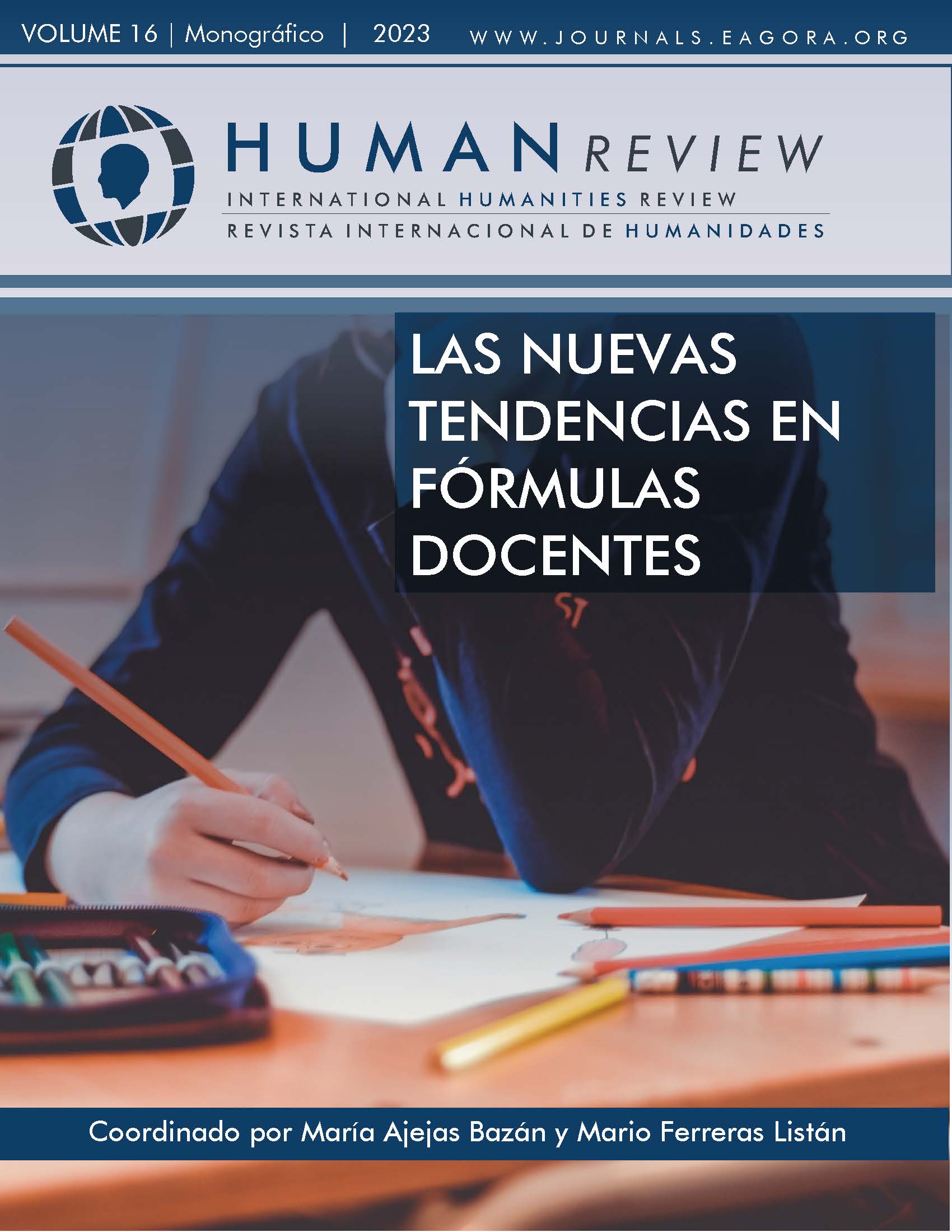Self-efficacy and performance based on the statistics teaching methodology
Autoeficacia y desempeño en estadística a partir de la metodología empleada en el curso para estudiantes de psicología
Keywords:
Self-efficacy, Performance, Statistics, Teaching methodology, University students, Psychology, Problem solvingAbstract
In order to compare the self-efficacy and performance in statistics of university students, before and after a traditional statistics course and one whit the problem-solving methodology, a quasi-experimental study was carried out on two intact groups of 84 and 115 students from psychology, respectively, applying a statistical self-efficacy sources test as a pre- and post-test, a mathematics exam before the course, and a statistics exam after the course. The results showed a significant difference in performance in statistics after the course, the experimental group had better resultsresults.
References
Arquero, J., Byrne, M., Flood, B. y González, J. (2009). Motives, expectations, preparedness and academic performance: a study of students of accounting at a Sanish Uiversity. Revista de Contabilidad 12(2), 279-299. http://www.sciencedirect.com/ science/article/pii/S1138489109700093
Bandura, A. (1997). Self-efficacy: The exercise of control. Freeman.
Castro-Velásquez, M., & Rivadeneira-Loor, F. (2022). Posibles Causas del Bajo Rendimiento en las Matemáticas: Una Revisión a la Literatura. Polo del Conocimiento, 7(2), 1089-1098. https://www.polodelconocimiento.com/ojs/index.php/es/article/view/3635
Centro Nacional de Evaluación para la Educación superior (CENEVAL, 2021). Estadísticas del EXANI-II 2021. https://datastudio.google.com/u/0/reporting/d48443cd-1fc5-447b-b05c-d817308f2807/page/KTYWB?s=gOXAvladDxI
Da Silva, E, Nunes, M., Queiroz., Goretti, M., y Leles, C. (2010). Factors influencing students’ performance in a Brazilian dental school. Brazilian Dental Journal, 21(1), 80-86. https://dx.doi.org/10.1590/S0103-64402010000100013
Del Valle, M., y Curotto, M. (2008). La resolución de problemas como estrategia de enseñanza y aprendizaje. Revista Electrónica de Enseñanza de las Ciencias, 7(2), 463-479. http://reec.uvigo.es/volumenes/volumen7/ART11_ Vol7_N2.pdf
García, M. (2011). La enseñanza tradicional de la matemática y su influencia en el aprovechamiento escolar de los alumnos de nivel primaria (Tesis de Maestría). Universidad Pedagógica Nacional. http://200.23.113.51/pdf/ 28757.pdf
Instituto Nacional para la Evaluación de la Educación [INEE]. (2017a). Planea resultados nacionales 2017 3ro secundaria. http://planea.sep.gob.mx
Instituto Nacional para la Evaluación de la Educación [INEE]. (2017b). Planea resultados nacionales 2017 Educación Media Superior. http://planea.sep.gob.mx
Instituto Nacional para la Evaluación de la Educación [INEE]. (2018). Planea resultados nacionales 2018 6to primaria. http://planea.sep.gob.mx
Hernández-Sampieri, R., y Mendoza, C. (2018). Metodología de la investigación. Las rutas cuantitativa, cualitativa y mixta. Mec Graw Hill.
Jones-White, D., Radcliffe, P., Huesman, R. y Kellogg, J. (2010). Redefining student success: applying different multinomial regression techniques for the study of student graduation across institutions of higher education. Research in Higher Education, 51(2), 154–174. http://link.springer.com/article/ 10.1007/s11162-009-9149-4
Kamalimoghaddam, H., Tarmizi, R., Mohd-Ayub, F., y Wan-Jaafar, W. (2016). Confirmatory model of mathematics self-efficacy, problem solving skills and prior knowledge on mathematics achievement: a structural equation model. Malaysian Journal of Mathematical Sciences, 10, 187-200. http://einspem.upm.edu.my/journal/fullpaper/vol10saugust/14.%20Hajar.pdf
Montero, Y., Pedroza, M., Astiz, M., y Vilanova, S. (2015). Caracterización de las actitudes de estudiantes universitarios de Matemática hacia los métodos numéricos. Revista Electrónica de Investigacion Educativa, 17(1), 88–99.
Pajares, F. (1997). Currents directions in self-efficacy research. En Maehr, M. y Pintrich (Eds). Advances in motivation and achievement. (pp. 1-49). JAI Press. https://www.uky.edu/~eushe2/Pajares/effchapter.html
Parra, B. (1990). Dos concepciones de la resolución de problemas de matemáticas. Educación Matemática, 2(3), 22-31. http://www.revista-educacion-matematica.org.mx/descargas/REM2-3/vol2-3-4.pdf
Rosário, P., Laurenco, A., Paiva, O., Rodrigues, A., Valle, A., y Tuero, E. (2012). Predicción del rendimiento en matemáticas: efecto de variables personales, socioeducativas y del contexto escolar. Psicothema, 24(2), 289-295. http://www. psicothema.com/pdf/4013.pdf
Ruiz de Miguel, C. (2015). Actitudes hacia la estadística de los alumnos del grado en pedagogía, educación social y maestro de educación primaria en la UCM. Educación XXI, 18(2), 351-374. http://dx.doi.org/10.5 944/educXX1.12158
Share, M., Kazemi, F., y Moeeni, N. (2014). Designing a Predicting Model for Mathematic Academic Achievement of College Students, Based on Two Non-Cognitive Variables of Self-Efficacy Beliefs and Attitude towards Mathematics. International Journal of Basic Sciences & Applied Research. 3(11), 835-840. http://www.isicenter.org/fulltext/paper-334.pdf
Valderrama, N., Azócar, G., De Bruijin, J., y González, M. (2016). Método de estudio de casos en la enseñanza universitaria de estadística; aplicación, enfoques y estrategias docentes. INNOVARE Revista Electrónica de Educación Superior, 1(2), 72-89. http://innovare.udec.cl/wp-content/uploads/2017/01/0719-7500.2016.9.pdf
Vargas, M., & Montero, E. (2016). Factores que determinan el rendimiento académico en Matemáticas en el contexto de una universidad tecnológica: aplicación de un modelo de ecuaciones estructurales. Universitas Psychologica, 15(4). https://www.redalyc.org/articulo.oa?id=6474879102
Zalazar, M., Aparicio, M., Ramirez, C., y Garrido, S. (2011). Estudios Preliminares de Adaptación de la Escala de Fuentes de Autoeficacia para Matemáticas. Revista Argentina de Ciencias del Comportamiento, 3(2), 1-6. http://www.redalyc.org/ articulo.oa?id=33342707300
Downloads
Published
Issue
Section
License
All articles are published under an Attribution-NoDerivatives 4.0 International (CC BY-ND 4.0) license. Authors retain copyright over their work.

